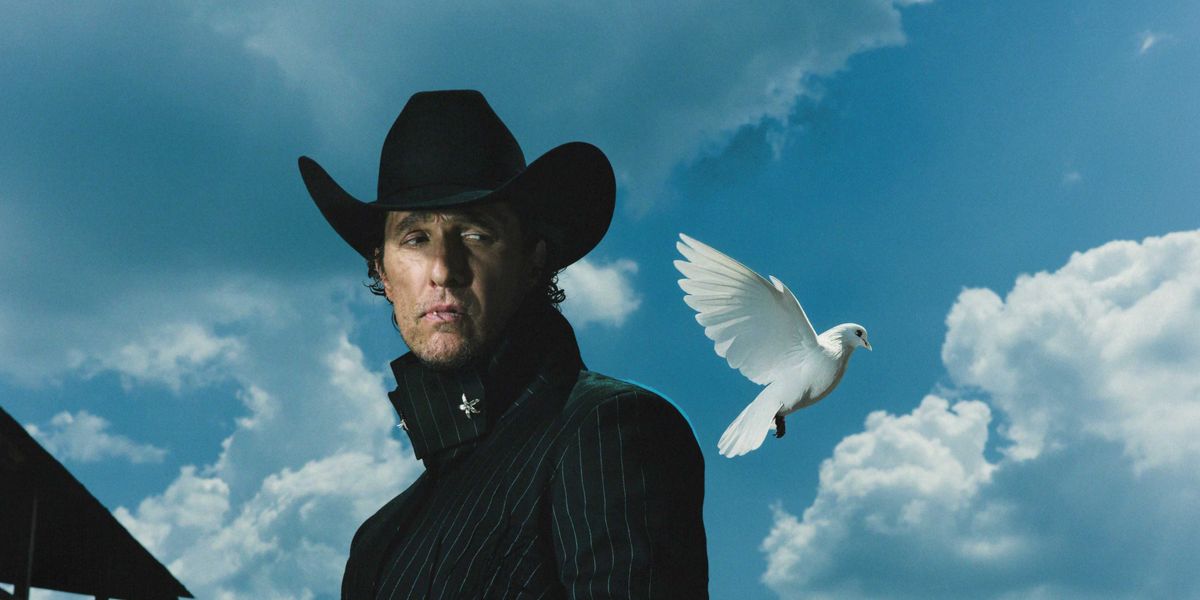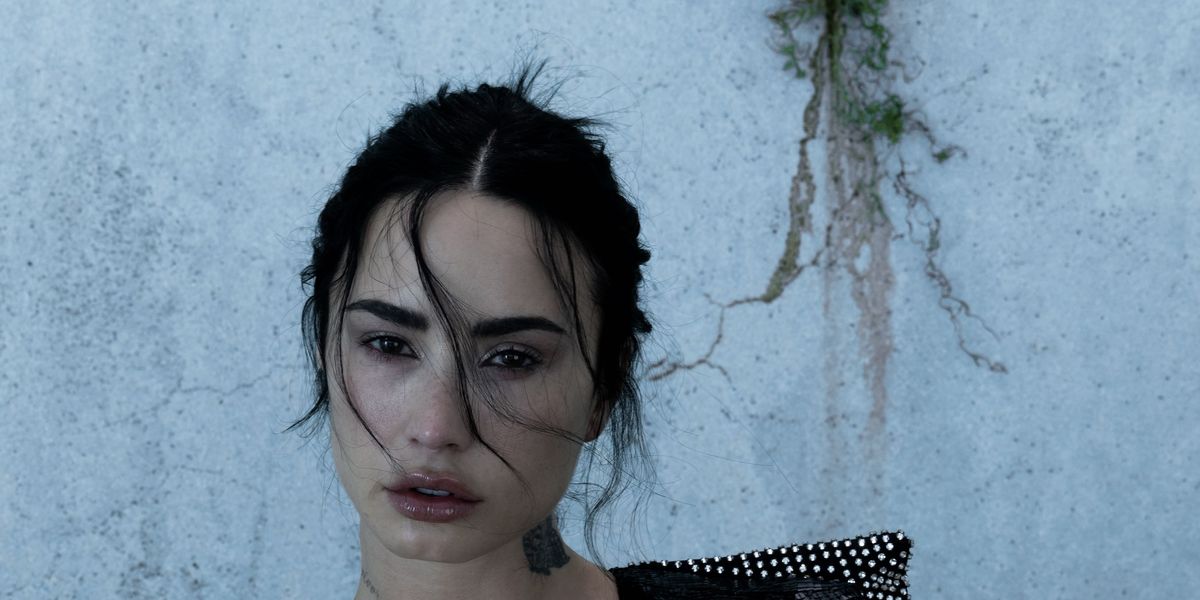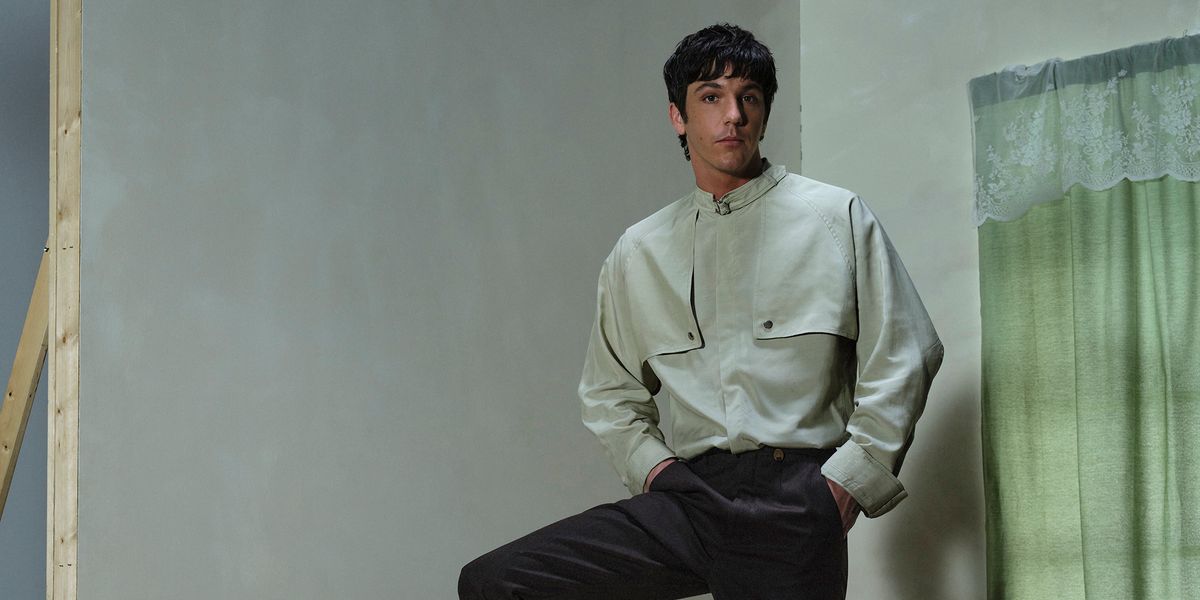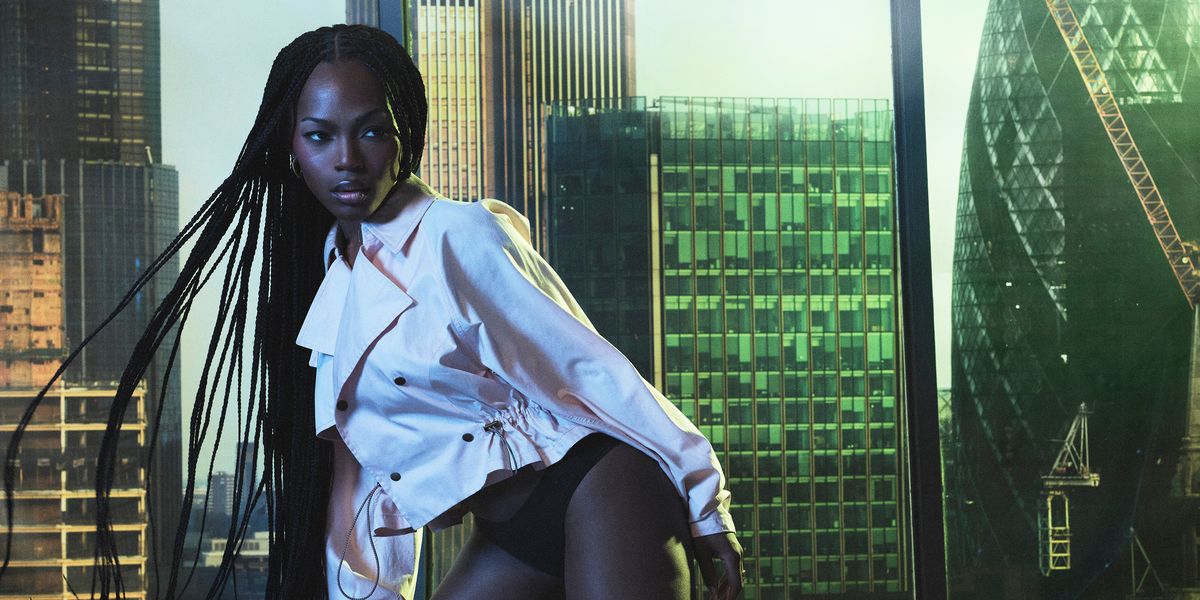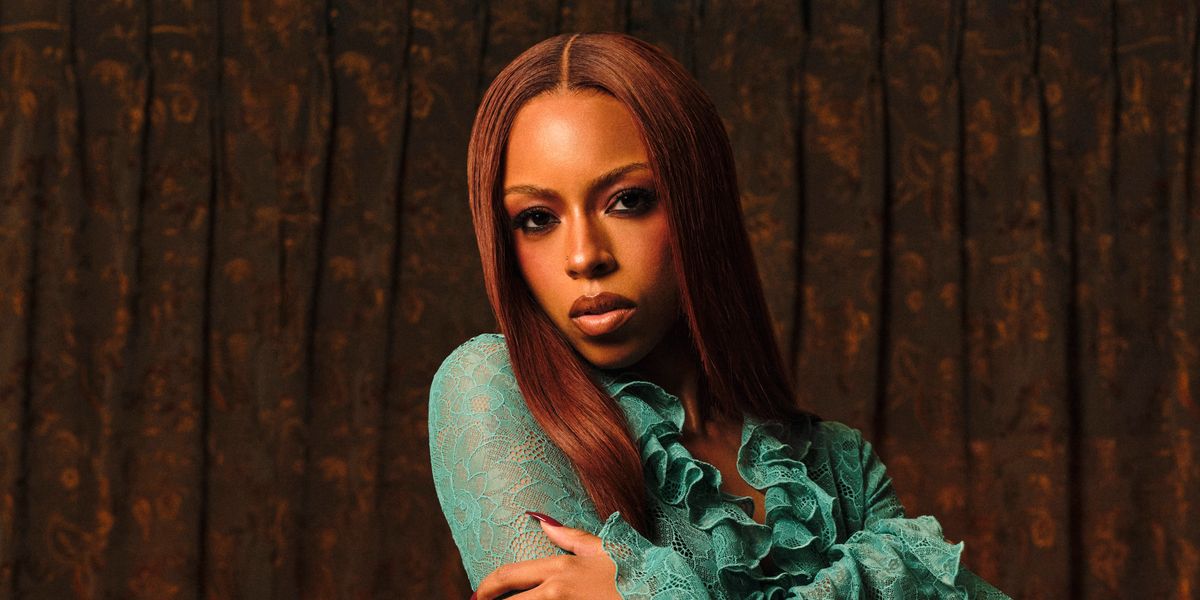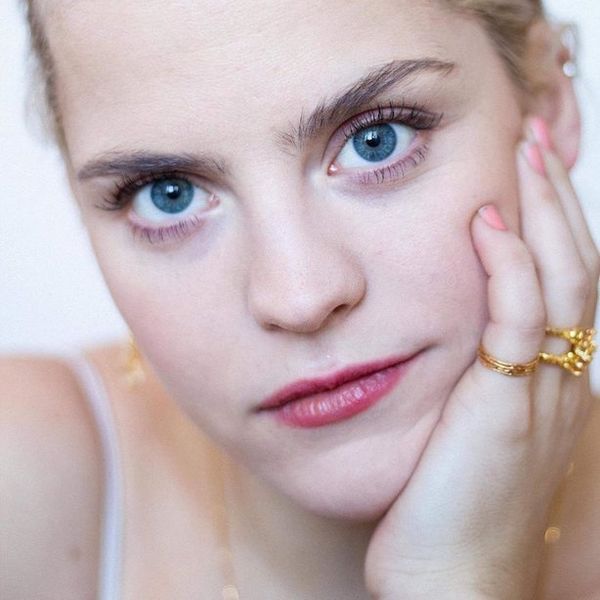
Skam's Vilde Takes On Body Positivity and Feminism in Norway
By Jeena Sharma
Apr 19, 2019When Norwegian teen drama Skam hit local TV network NRK, no one knew it would become global phenomenon that it has.
The show initially caught attention for its peculiar format and marketing strategy, which involved short clips from an episode being dropped every day on Instagram in real time. Each season followed one primary character charting their own individual battles, ranging from hot button issues like Islamophobia, homophobia and date rape. Nothing was off limits.
It was the groundbreaking third season of the show that really captured global interest, when a tale of two high school boys coming to terms with their sexuality transcended the boundaries of the tiny Scandinavian nation. It's also when bootlegged clips of the show — with fan-made subtitles — started doing the rounds in secret Google drive files. Eventually the fever pitch popularity spawned a number of international remakes from France, Italy to Spain and even an American version, which is now in its second season.
Although the shows' edgy themes were familiar to savvy audiences, it was the real life-like treatment — all inclusive of the repetitive frustration and confusion that comes when nearing adulthood — that shaped the show's definitive voice.
Ulrikke Falch's Vilde, a pivotal character in the original series, often provides comic relief. Like almost every young cast member of the show, Falch didn't have tons of on-screen acting experience prior to being cast. Yet, Falch's portrayal of Vilde's battles with bulimia, body image, and coming to terms with self-hate that she often projected on to her best friends, resonated with fans around the world.
After four successful seasons, the series concluded in 2017. And while almost all of her co-stars have gone on to work on larger film and TV projects, Falch has taken on a more difficult task. Her Instagram currently speaks to the same struggles Vilde went through, only in a more provocative and confident way. Her range of bold and blatant posts grapple with everything from body positivity, mental health, and feminism, to self-hate.
"Vilde is the personification of my insecurities. I struggled with eating disorders when I was younger and, again, what saved me and also my family — because my family... I think it's a family illness because it involves so many people, not just the one with the eating disorder," she tells me over the phone from Oslo.
Unlike Vilde, who was adored by fans despite her often inappropriate interjections, Falch faces constant criticism for using her platform to be vocal. "I realized a lot of my ideas were considered provocative once the hate started pouring in," she said. "But i just couldn't see what was so wrong with my message of self-love, so I decided to talk more about it."
Despite the hauntingly real and explicit way Skam handled every hot button subject, young teens in Norway continue to work through dated prejudices, or so Falch says. Now with one already published book, a documentary where she goes around high school campuses explaining the meaning of feminism to young teens, and an undying activist spirit, Falch is hoping to change that.
PAPER: What're some of the most important parts of your platform?
Falch: I've been really open about mental health issues, I think. There's not a lot of discourse around it here in Norway. Despite all the discouraging responses I get, I think about that one person that might feel less alone because I shared my story; because they see that there is someone else struggling with the same issues. It kind of just went from there, talking about mental health, and then eventually I got really engaged in feminism. For me, the "radical idea" here is loving yourself unconditionally and unapologetically. When I realized that people thought that was provocative, it just prompted me to talk more openly and loudly about it, because I couldn't see the issue with it.
Your character on Skam was someone who dealt with a lot of body, and self-image issues. Was it inspired by your real life in any way?
Of course! I usually say that the character reflects the most insecure part of me; Vilde is the personification of my insecurities. I struggled with eating disorders when I was younger. What saved me was literally having an open conversation about it with my family. I think it's the sort of illness that affects your whole family because it involves so many people, not just the one with the eating disorder. My dad and my twin sister struggled along with me. I saw their pain, I saw what my illness did to them, and eventually that's what saved me.
My father and I became really close when we went to therapy. We also did something called 'family therapy,' where there were five different families in a room. It's then I realized how much of an impact my eating disorder had on the people surrounding me. I was like, 'Oh shit, this is not just my problem' My father is getting ill because of this, my father doesn't have a life. He can't work because he's scared that I will skip a meal.' So it's what I prompted me to be healthy again. I wanted to use that openness that we had in our family and bring it out on social media and inspire other people to talk more candidly about it.
Were these issues something that you wanted to bring into your character, or did the the directors prompt you to do that?
When I auditioned for the role, Vilde's character was already said to have eating disorders and issues with her mother. I almost got goosebumps because that was exactly the same thing with me, so it was really just random. But that's how it happened.
"Social media represents a picture of life that is really polished and unreal. I wanted to be the counterpart to that."
Why did social media become such an important part of your work?
Because social media represents a picture of life that is really polished and unreal. I wanted to be the counterpart to that. I wanted to represent real life, real struggle, me as a person without any kind of filter; I wanted to communicate that I'm a whole person and I'm not just the pretty images with me in bikinis and white beaches.
Did you experience a lot of bullying growing up?
Yeah, mainly because I didn't fit into the idea of how I should be feminine. I was loud, I did a lot of sports, I liked to fight. So that was the hardest part. I was constantly made to feel I wasn't a girl in the right way.
How did you deal with that?
I reduced myself to having an eating disorder. That was about being small, "feminine" and vulnerable. I felt so little; I like to compare myself to a squirrel, a cute little squirrel, because that's the image I have of myself being really ill. Just helpless and really vulnerable. My eating disorder was kind of a reflection of the way femininity is perceived, actually.
What is the conversation around these subjects usually like in Norway? Is it very open?
It wasn't as open three years ago, but it's always a development. I think in a way, it's going in the wrong direction because we have really trivialized anxiety to the point where people think it's kind of 'hip' to have a mental disorder. I think the conversation has turned totally the wrong way. Anxiety is a really serious disorder and people are kind of treating it so casually.
What your thoughts are on the state of diversity in beauty right now? Do you think a lot of it is just marketing?
I think a lot of it is marketing, but having said that, it's also a positive way to utilize the counterculture, where the counterculture has become popular culture. Diversity is a part of what's popular right now, and I think that's a good thing.
Do you think it's creating actual change, though?
That's a really difficult question because I don't think it's genuine. I don't think when a designer is selling T-shirts with feminist slogans on them, it's creating actual change but it sends out a signal that's important. So you could kind of criticize it for not being genuine, but still... I love that it's more popular.
I also wanted to get your perspective on diversity in the beauty industry in Norway.
In Norway, it's kind of just white, thin girls with blonde hair and perfect bodies. That's the beauty ideal, it's really slim. I think America's more open-minded, the conversation's more active there. Here in Norway, we're so privileged that we don't care about diversity, or feminism.
How do you define beauty?
Beauty to me is to be able to sit in a room and be myself, be everything I can and nothing at the same time. It's a feeling of being loved, that's beauty. Is that a bad answer?
No! But why do you think it's difficult for people to grasp something so simple?
Because we're sold a totally different picture, that beauty is about how we look or how our hair is or how we dress. I want to redefine beauty to be a feeling, not a look.
You also wrote a book that came out last year. Tell me about that!
So I wrote this book called Jenteloven, which in English translates to Girls' Law. We are two authors, and it addresses different forms of discrimination and harassment women face and how we can fight them. But while I've been really busy making a documentary, my friend is the one kind of spreading the word. She travels around in Norway to talk about feminism and how girls should treat themselves and how they should feel good about themselves.
What has the response been like?
I think people are surprised, that they're not alone in their experience, and that they can relate to us in a way that's just being part of something bigger than yourself. So it's been really positive.
What's this documentary you're working on?
It's me going to high schools for a month where I try to convince everyone to call themselves feminists. I try to educate them, because the one argument I usually get when I talk about feminism is that 'we are already equal.'
So the month that I'm there, I try to talk about why we're not really equal, how gender norms work, and make it difficult for us to express ourselves. It was tough because [in Norway] people are still kind of afraid of the word, "feminist." They still subscribe to outdated stereotypes that it's about growing hair under their arms or really angry women.
How did the students react?
Well the boys hated me, they still hate me. It was really difficult, it felt like being bullied again because I came in there and wanted to preach about equal rights, and they were like, 'No, actually we don't care. I have other things in my life that's more important.'
When does it come out?
It was actually going to have a premiere in this November, then I became really ill, so we had to delay it, so now it's coming out in August. And it's a series, so it's going to air on NRK, actually.
Are you working on any TV shows or movies at all?
Eh, not right now. I'm not sure which way I want to do it — if it's writing a book, doing a documentary, or just posting pictures on Instagram, but I want to tell stories. There's so many ways for me to do that, so I'm really happy with where I am right now.
Would you ever come back for a Skam remake?
If I could? I would love to!
Photo via Leif-Erik Sørensen
Entertainment
Matthew McConaughey Found His Rhythm
Story by Joan Summers / Photography by Greg Swales / Styling by Angelina Cantu / Grooming by Kara Yoshimoto Bua
Story by Joan Summers / Photography by Greg Swales / Styling by Angelina Cantu / Grooming by Kara Yoshimoto Bua
30 September
Music
Demi Lovato Is No Joke
Story by Ivan Guzman / Photography by Jason Renaud / Styling by Chris Horan/ Makeup by Loftjet / Set design by Allegra Peyton
Story by Ivan Guzman / Photography by Jason Renaud / Styling by Chris Horan/ Makeup by Loftjet / Set design by Allegra Peyton
15 September
Music
Role Model Isn’t In Kansas Anymore
Story by Tobias Hess / Photography by Richie Talboy / Styling by Angelina Cantú / Grooming by Jerrod Roberts / Set design by Allegra Peyton
Story by Tobias Hess / Photography by Richie Talboy / Styling by Angelina Cantú / Grooming by Jerrod Roberts / Set design by Allegra Peyton
14 August
Internet
Quen Blackwell Takes Over
Story by Ivan Guzman / Photography by Richie Talboy / Styling by Angelina Cantú / Makeup by Kimora Mulan / Hair by Malcolm Marquez / Nails by Kimmie Kyees / Set design by Allegra Peyton
Story by Ivan Guzman / Photography by Richie Talboy / Styling by Angelina Cantú / Makeup by Kimora Mulan / Hair by Malcolm Marquez / Nails by Kimmie Kyees / Set design by Allegra Peyton
11 August
Music
Ravyn Lenae Enjoys the View
Story by Erica Campbell / Photography by Richie Talboy / Styling by Angelina Cantú / Makeup by Matthew Fishman / Hair by Jacob Aaron Dillon / Nails by Kimmie Kyees / Set design by Allegra Peyton
Story by Erica Campbell / Photography by Richie Talboy / Styling by Angelina Cantú / Makeup by Matthew Fishman / Hair by Jacob Aaron Dillon / Nails by Kimmie Kyees / Set design by Allegra Peyton
04 August
